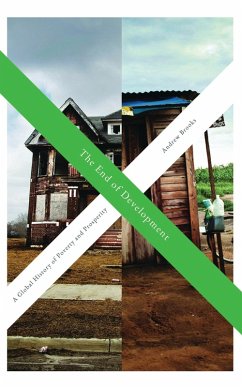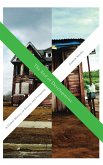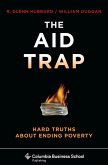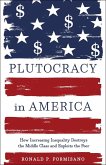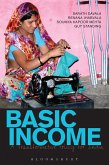Why did some countries grow rich while others remained poor?
Human history unfolded differently across the globe. The world is separated in to places of poverty and prosperity. Tracing the long arc of human history from hunter gatherer societies to the early twenty first century in an argument grounded in a deep understanding of geography, Andrew Brooks rejects popular explanations for the divergence of nations. This accessible and illuminating volume shows how the wealth of 'the West' and poverty of 'the rest' stem not from environmental factors or some unique European cultural, social or technological qualities, but from the expansion of colonialism and the rise of America. Brooks puts the case that international inequality was moulded by capitalist development over the last 500 years.
After the Second World War, international aid projects failed to close the gap between 'developed' and 'developing' nations and millions remain impoverished. Rather than address the root causes of inequality, overseas development assistance exacerbate the problems of an uneven world by imposing crippling debts and destructive neoliberal policies on poor countries. But this flawed form of development is now coming to an end, as the emerging economies of Asia and Africa begin to assert themselves on the world stage.
The End of Development provides a compelling account of how human history unfolded differently in varied regions of the world. Brooks argues that we must now seize the opportunity afforded by today's changing economic geography to transform attitudes towards inequality and to develop radical new approaches to addressing global poverty, as the alternative is to accept that impoverishment is somehow part of the natural order of things.
Human history unfolded differently across the globe. The world is separated in to places of poverty and prosperity. Tracing the long arc of human history from hunter gatherer societies to the early twenty first century in an argument grounded in a deep understanding of geography, Andrew Brooks rejects popular explanations for the divergence of nations. This accessible and illuminating volume shows how the wealth of 'the West' and poverty of 'the rest' stem not from environmental factors or some unique European cultural, social or technological qualities, but from the expansion of colonialism and the rise of America. Brooks puts the case that international inequality was moulded by capitalist development over the last 500 years.
After the Second World War, international aid projects failed to close the gap between 'developed' and 'developing' nations and millions remain impoverished. Rather than address the root causes of inequality, overseas development assistance exacerbate the problems of an uneven world by imposing crippling debts and destructive neoliberal policies on poor countries. But this flawed form of development is now coming to an end, as the emerging economies of Asia and Africa begin to assert themselves on the world stage.
The End of Development provides a compelling account of how human history unfolded differently in varied regions of the world. Brooks argues that we must now seize the opportunity afforded by today's changing economic geography to transform attitudes towards inequality and to develop radical new approaches to addressing global poverty, as the alternative is to accept that impoverishment is somehow part of the natural order of things.

